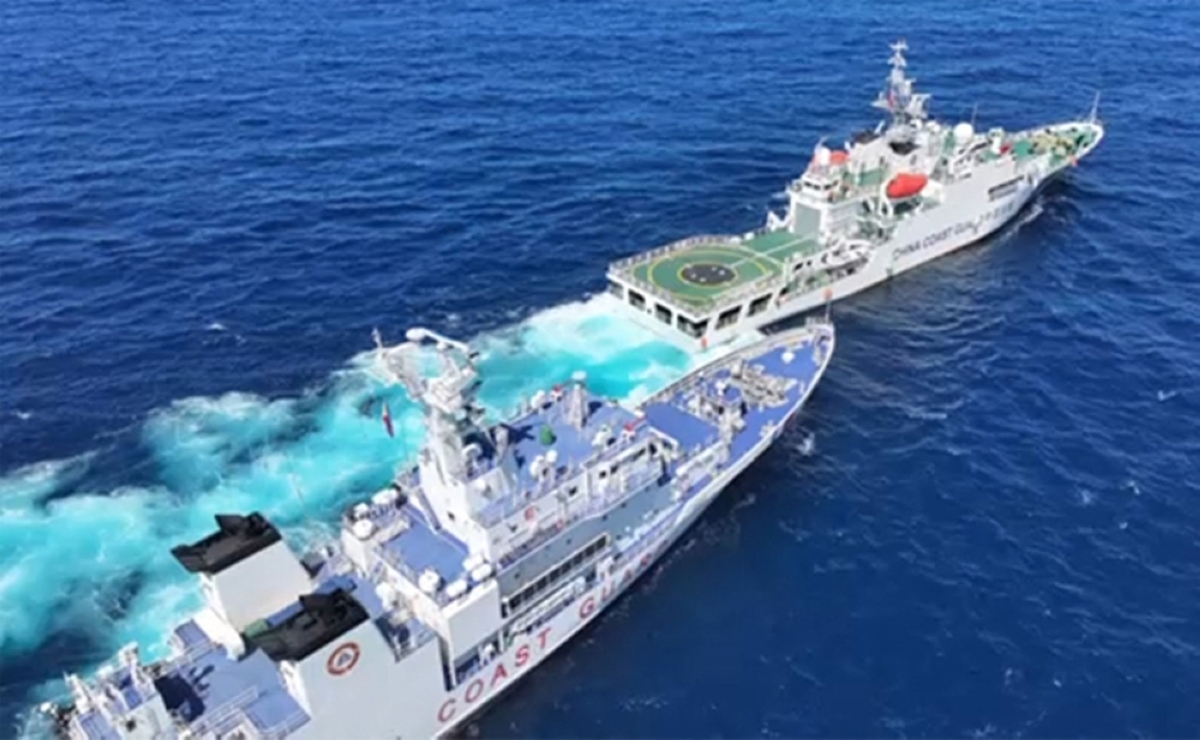MANILA, Philippines: In a concerning development, Chinese vessels have moved to block access to Ayungin Shoal in the West Philippine Sea. This incident occurred early Saturday morning, while Philippine ships were conducting another Rotation and Resupply (RoRe) mission to Filipino troops stationed on board BRP Sierra Madre.
Raymond Powell, founder and director of SeaLight, a maritime transparency project that monitors and reports activities in the South China Sea, provided insight into the situation. He revealed that a China Coast Guard (CCG) vessel with bow number 5203, along with two Chinese maritime militia (CMM) ships, moved to block access to Ayungin Shoal. This occurred as Philippines Coast Guard (PCG) vessels BRP Cabra and Sindangan passed south of the shoal and nearby Mischief Reef.
This latest blockade by China in Ayungin Shoal comes just two days after the CCG claimed to have “expelled” a Philippine vessel that had “illegally intruded” into the waters adjacent to Bajo de Masinloc, which the Chinese refer to as Huangyan Dao or Huangyan Island, in the South China Sea.
According to the CCG, after issuing repeated warnings, they “implemented measures to control the (Philippine) vessel’s navigation and compel it to leave the area in accordance with the law.” The CCG also stated that “the situation was handled in a professional and standardized manner on-site.”
This series of events raises concerns about the ongoing territorial disputes in the South China Sea and the impact on regional stability. Ayungin Shoal, located approximately 105 nautical miles from Palawan, is an area of strategic importance for the Philippines. It is home to a small contingent of Filipino troops stationed on board the BRP Sierra Madre, a grounded navy ship that serves as a military outpost.
The presence of Chinese vessels blocking access to Ayungin Shoal not only hampers the resupply mission for the Filipino troops but also raises questions about China’s intentions and actions in the region. The Chinese maritime militia ships, in particular, have been a source of contention, as they are often used to assert China’s territorial claims by occupying disputed areas.
The international community has been closely monitoring the situation in the South China Sea, as it has far-reaching implications for regional security and freedom of navigation. The United States and several other countries have expressed their concerns over China’s assertiveness in the disputed waters.
In response to China’s actions, the Philippines has lodged diplomatic protests and sought support from its allies. The Philippines’ Department of Foreign Affairs issued a statement condemning the blockade and calling it a “blatant infringement of Philippine sovereignty.” The statement also emphasized the need for a peaceful resolution to the disputes in accordance with international law, particularly the United Nations Convention on the Law of the Sea (UNCLOS).
It is crucial for all parties involved to exercise restraint and engage in dialogue to prevent further escalation of tensions. The South China Sea disputes require a diplomatic solution that respects the rights and interests of all countries in the region. International cooperation and adherence to established legal frameworks are essential for maintaining peace and stability in the area.
In conclusion, the recent blockade by Chinese vessels in Ayungin Shoal highlights the ongoing territorial disputes in the South China Sea. The actions of China Coast Guard and Chinese maritime militia ships raise concerns about regional stability and freedom of navigation. The international community must continue to monitor the situation closely and support peaceful resolutions based on international law.
Source: The Manila Times







